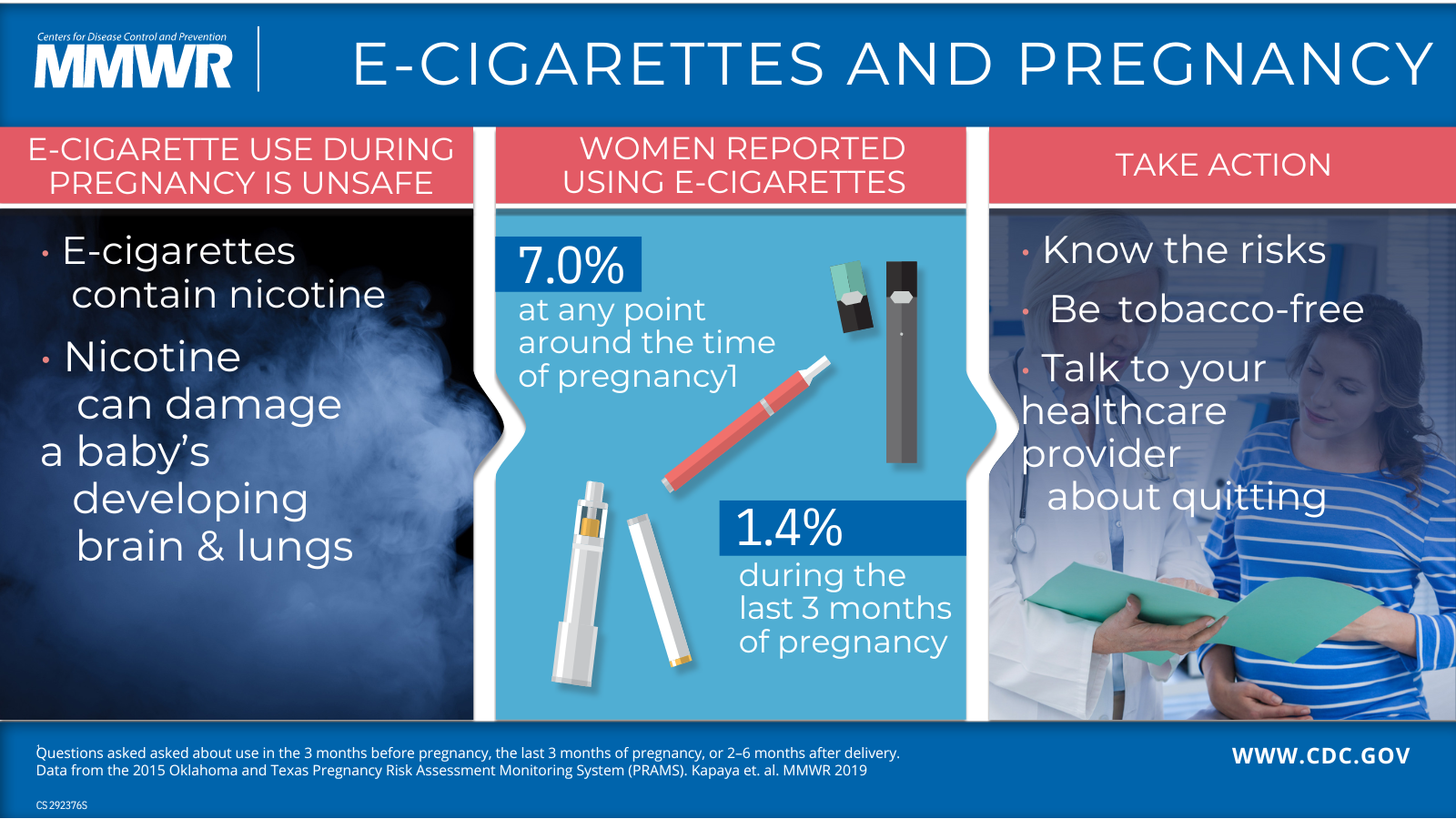Electronic cigarettes (e-cigarettes) are often perceived as safer alternatives to traditional smoking during pregnancy, but scientific evidence highlights significant risks. While research continues to evolve, current studies emphasize that nicotine and other chemicals in e-liquids pose threats to maternal and fetal health.
Risk 1: Fetal Growth Restriction
E-cigarette use during pregnancy is linked to impaired fetal development, resulting in low birth weight and intrauterine growth restriction. Nicotine exposure restricts blood flow to the placenta, reducing oxygen and nutrient supply to the fetus. Studies from large cohorts, such as those reported in the Journal of the American Medical Association, show a 20-30% higher incidence of low birth weight in e-cigarette users compared to non-users. This effect is comparable to traditional smoking and can lead to long-term health issues for the child.

Risk 2: Preterm Birth
E-cigarettes increase the risk of preterm delivery, defined as birth before 37 weeks gestation. The toxicants in e-liquids, including volatile organic compounds, can trigger inflammatory responses and uterine contractions. Meta-analyses in publications like Obstetrics & Gynecology indicate that pregnant women using e-cigarettes face a 15-25% elevated risk of preterm birth. Complications may include neonatal intensive care needs and respiratory distress, contributing to higher infant mortality rates.
Risk 3: Congenital Malformations
Exposure to e-cigarette aerosols elevates the likelihood of congenital abnormalities, such as heart defects or neural tube issues. Harmful substances like formaldehyde and acrolein in vapor interfere with embryonic development during critical stages. Research from the Centers for Disease Control and Prevention (CDC) suggests a modest but significant increase in malformation rates among e-cigarette-exposed pregnancies, with animal studies confirming teratogenic effects. This underscores the vulnerability in early gestation.
Risk 4: Neurodevelopmental Disorders
Prenatal e-cigarette exposure is associated with adverse neurodevelopmental outcomes in offspring, including attention-deficit/hyperactivity disorder (ADHD) and cognitive delays. Nicotine alters brain development by binding to nicotinic receptors, disrupting neurotransmitter systems. Longitudinal studies, such as those in Pediatrics, report that children of e-cigarette-using mothers show higher rates of behavioral issues, emphasizing the lifelong impact on learning and social functioning.
Overall, scientific consensus advises avoiding all nicotine products, including e-cigarettes, during pregnancy. Consultation with healthcare providers is crucial for evidence-based risk reduction strategies.









